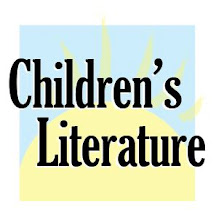Ally has her degree from Brigham Young University. Following college, she spent several years teaching high school English in Salt Lake City and upstate New York. During her first year of teaching, Ally discovered that one of the girls in her class was the daughter of author Chris Crowe, best known for the award winning young adult novel Mississippi Trial, 1955—an intimidating way to kick off your teaching career. Other memorable moments from this period in her life included chaperoning school dances with her husband as a way to make a little extra money. Recalling that junior prom was her favorite to chaperone, Ally explained that all the students were on their best behavior—the boys made sure all the girls had dates. One year Ally witnessed a boy proposing during prom. This set off a dual reaction in her. From wanting to jump in and fix this bad idea and then also stopping and recognizing that it's the couples' own life to do with what they will.
That idea of being torn between wanting to fix young peoples' lives and stepping back to let them make their own way is a critical part of the narrative thread in Matched. In the world Ally created, the governing body, known as The Society, selects everything for you in return for a long life. Your job, who you marry, when you die: all determined by Society officials. The heroine in Ally's novel is Cassia, a teen who during her Matching ceremony experiences a rare occurrence: a mistake by The Society. After the screen shows the face of her mate, a second face briefly appears. This sets off a chain of events that lead to what Cassia never expected—a choice.
 The desire for control is an important element in many dystopian novels. In Matched, messiness is unacceptable. The Society, through control, has been able to extended the life span and "improve" the quality of life for its people. The science behind the matching process in Ally's novel was influenced by her husband, an English major turned economist, who would often talk about algorithms for relationships. Since relationships can be a particularly messy element in anyone's life, it isn't a huge leap to see why controlling that would be appealing to a society striving for perfection. But as Ally pointed out, in life messy is real and unavoidable. In that regard, high schoolers are often in a strange place where feelings of both power and powerlessness exist. That painful juxtaposition is a natural fit with dystopian literature. While students in our world may not have Big Brother or a harsh government repressing them as in Matched, they can identify with the struggle against something or someone. In a recent piece written for MTV about dystopian novels Ally wrote, "when we read dystopia, we root for these people to break free because we are these people; hoping and fighting against things that are bigger than ourselves."
The desire for control is an important element in many dystopian novels. In Matched, messiness is unacceptable. The Society, through control, has been able to extended the life span and "improve" the quality of life for its people. The science behind the matching process in Ally's novel was influenced by her husband, an English major turned economist, who would often talk about algorithms for relationships. Since relationships can be a particularly messy element in anyone's life, it isn't a huge leap to see why controlling that would be appealing to a society striving for perfection. But as Ally pointed out, in life messy is real and unavoidable. In that regard, high schoolers are often in a strange place where feelings of both power and powerlessness exist. That painful juxtaposition is a natural fit with dystopian literature. While students in our world may not have Big Brother or a harsh government repressing them as in Matched, they can identify with the struggle against something or someone. In a recent piece written for MTV about dystopian novels Ally wrote, "when we read dystopia, we root for these people to break free because we are these people; hoping and fighting against things that are bigger than ourselves."Ally Condie lives in Salt Lake City, Utah, with her husband and three sons. For additional information about Ally, visit her web site http://www.allysoncondie.com/. To read the MTV article, visit http://hollywoodcrush.mtv.com/2011/05/06/matched-ally-condie-on-dystopian.
Photo source: http://www.allysoncondie.com/
Emily Griffin
CLCD






No comments:
Post a Comment